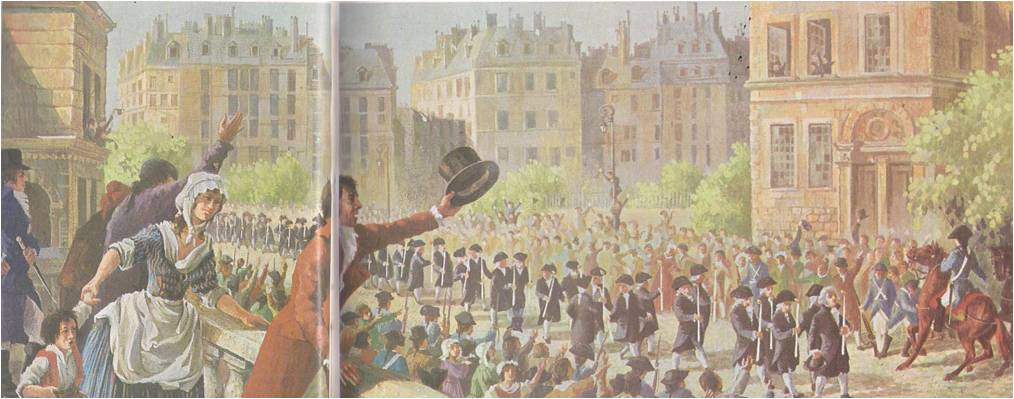“Down with the King!” That cry was heard again and again on the night of August 9, 1792, as restless mobs gathered in the streets of Paris. They had only one purpose in mind and that was to make certain the king was toppled from his throne. The Assembly had been warned to dispose of the king before midnight and that deadline was only hours away. If the Assembly failed to act, the mobs would join forces, march on the royal Palace and seize the king themselves. As the midnight deadline approached, the frightened members of the Assembly were still in session. It was their duty to protect the king, yet, if they sent more troops to the palace, they could be held responsible for starting a civil war. The Tuileries, as the royal palace was called, was already well guarded by a Swiss guard of 900 troops, about the same number of police and 2,000 of the National Guard. The members of the Assembly were troubled by many questions, for France now had a constitution and the members were the elected representatives of the Legislative Assembly. The new government was less than a year old. Since the king served as the head of that government, what would happen to it if the king were dragged from his throne? On the other hand, could the new government survive under the leadership of a king who had lost the trust of the people? King Louis had done a number of things which had turned the people against him. It was his threat to use troops against the people that had brought about the fall of the Bastille three years earlier. Then, on the night of June 20, 1791, he and his family had made an unsuccessful attempt to escape from the …
Read More »









